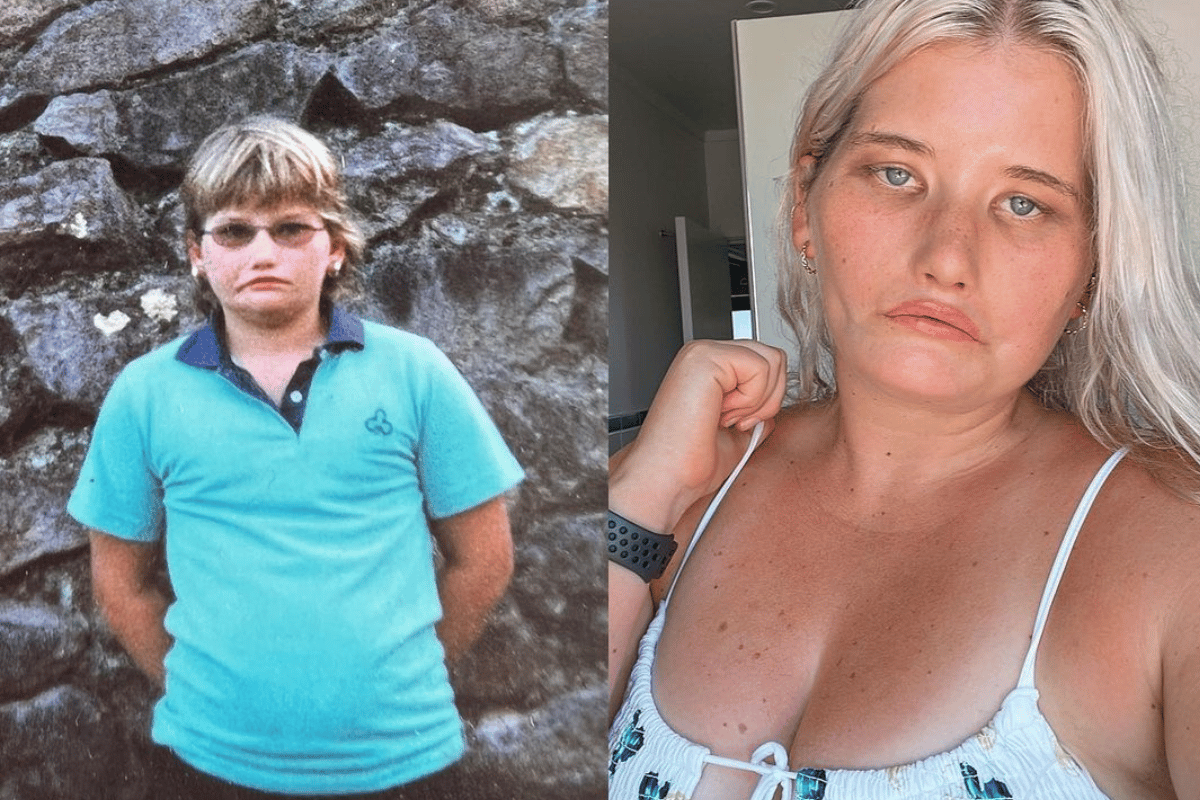
Tayla Clement is unable to smile. Born with an extremely rare neurological condition known as Moebius Syndrome, the 24-year-old from New Zealand has a 'frozen face'.
The condition affects the muscles and nerves that control facial expression and eye movement, resulting in facial paralysis.
In Tayla's case, her eyebrows can’t move, her eyes don't track from left to right and her upper lip doesn’t move. Meaning? She 'can't smile'.
Moebius Syndrome is a condition so rare that it only affects one person in every three to four million.
Watch: Boy with rare condition adopts cat with identical features. Post continues below.
In an interview with Mamamia, Tayla shared, "It’s pretty much like facial paralysis - or as I like to refer to it, free anti-wrinkle injectables!"
Because people with Moebius syndrome can't express emotions with their facial muscles, those with the condition are often misunderstood and judged for the way they look.
For Tayla, the restricted use of her mouth and eyebrows and simply not being able to show facial expressions made her childhood and growing up really difficult.

